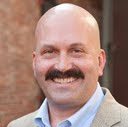The news is dominated by two scandals, one each in the public and private sectors. While "sobering" (one of the president-elect's apt descriptors), they are hardly surprising.
Bernie Madoff's asset management business is but the latest Ponzi scheme to fall apart, with the distinction that his fraud operated for at least a decade - a remarkably long duration - and sucked in A-list investors. Financial markets put a premium on cash right now, and undoubtedly the dramatic ebb tide of cash flow over the last three months made Madoff realize the inevitable end was at hand.
The Madoff scandal illustrates the limits of both public and private checks and balances. There are news reports of Madoff being reported to the SEC repeatedly, and yet nothing was done. Sophisticated investors were supposed to do their homework, yet nothing was done by the victims or their advisors. Reportedly some advisors kept their clients away from Madoff, who refused to discuss investment strategy or disclose true financial records. Transparency and accountability would have shortened the fraud's duration, but sometimes enforcing these essential principles requires backbone, forcefulness and fearlessness of being unpopular. And how many humans posess such strengths, either in government or the private sector? Democracy and capitalism are limited in their speed of self-correction by the frequency of human fallibility.
One common sense aphorism I've often used is "if it sounds too good to be true, it probably is." Homeowners and investors alike were lulled into an uncritical stupor by perennially rising asset appreciation. The good times were too good to be true, and now many are paying the price (me included - and I've used the phrase "don't confuse brains with a bull market" many times in the past).
Meanwhile, the Blagojevich scandal is another reminder that greed motivates both public and private leaders. Surprising? Not really. But the next time you hear a gratuitous screed against corporate greed, just reply "What about Blagojevich?" There are no genetic differences between those in the public and private sectors, so we shouldn't be surprised when financial incentives drive behavior, scandalous or otherwise, of public and private leaders.
Democracy and capitalism are designed to have multiple layer of checks and balances driven by financial and other incentives. Sometimes the incentives are mis-aligned (think mortgage meltdown), but sometimes it's just bad actors who bully their way through the levees of checks and balances upheld by mere mortals. No law can entirely overcome human weakness. It is the Sysiphean imperative for all of us to keep our eyes open.
8 years ago



No comments:
Post a Comment